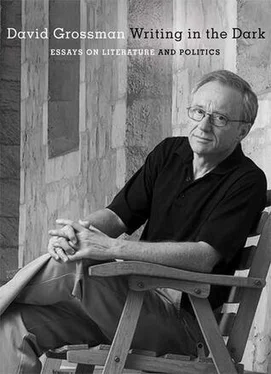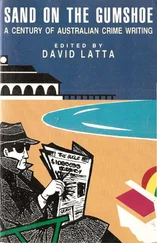These forms of media — written, electronic, online, often free, highly accessible, highly influential — have an existential need to preserve the public’s interest, to constantly stimulate its hungry desires. And so even when ostensibly dealing with issues of moral and human import, and even when ostensibly assuming a role of social responsibility, still the finger they point at hotbeds of corruption and wrongdoing and suffering seems mechanical, automatic, with no sincere interest in the problems it highlights. Their true purpose — apart from generating profits for their owners — is to preserve a continually stimulated state of “public condemnation” or “public exoneration” of certain individuals, who change at the speed of light. This rapid exchange is the message of mass media. Sometimes it seems that it is not the information itself that the media deem essential, but merely the rate at which it shifts. The neurotic, covetous, consumerist, seductive beat they create. The zeitgeist: the zapping is the message.
In this world I have described, literature has no influential representatives in the centers of power, and I find it difficult to believe that literature can change it. But it can offer different ways to live in it. To live with an internal rhythm and an internal continuity that fulfill our emotional and spiritual needs far more than what is violently imposed upon us by the external systems.
I know that when I read a good book, I experience internal clarification: my sense of uniqueness as a person grows lucid. The measured, precise voice that reaches me from the outside animates voices within me, some of which may have been mute until this other voice, or this particular book, came and woke them. And even if thousands of people are reading the very same book I am reading at the very same moment, each of us faces it alone. For each of us, the book is a completely different kind of litmus test.
A good book — and there are not many, because literature too, of course, is subject to the seductions and obstacles of mass media — individualizes and extracts the single reader out of the masses. It gives him an opportunity to feel how spiritual contents, memories, and existential possibilities can float up and rise from within him, from unfamiliar places, and they are his alone. The fruits of his personality alone. The result of his most intimate refinements. And in the mass culture of daily life, in the overall pollution of our consciousness, it is so difficult for these soulful contents to emerge from the inner depths and be animated.
At its best, literature can bring us together with the fate of those who are distant and foreign. It can create within us, at times, a sense of wonder at having managed, by the skin of our teeth, to escape those strangers’ fates, or make us feel sad for not being truly close to them. For not being able to reach out and touch them. I am not saying that this feeling immediately motivates us to any form of action, but certainly without it no act of empathy or commitment or responsibility can be possible.
At its best, literature can be kind to us: it can slightly allay our sense of insult at the dehumanization that results from living in large, anonymous global societies. The insult of describing ourselves in coarse language, in clichés, in generalizations and stereotypes. The insult of our becoming — as Herbert Marcuse said—“one-dimensional man.”
Literature also gives us the feeling that there is a way to fight the cruel arbitrariness that decrees our fate: even if at the end of The Trial the authorities shoot Joseph K. “like a dog”; even if Antigone is executed; even if Hans Castorp eventually dies in The Magic Mountain —still we, who have seen them through their struggles, have discovered the power of the individual to be human even in the harshest circumstances. Reading — literature — restores our dignity and our primal faces, our human faces, the ones that existed before they were blurred and erased among the masses. Before we were expropriated, nationalized, and sold wholesale to the lowest bidder.
When I finished writing See Under: Love , I realized that I had written it to say that he who destroys a man, any man, is ultimately destroying a creation that is unique and boundless, that can never again be reconstructed, and there will never be another like it.
For the last four years I have been writing a novel that wishes to say the same thing, but from a different place, and in the context of a different reality. The protagonist of my book, an Israeli woman of about fifty, is the mother of a young soldier who goes to war. She fears for his life, she senses catastrophe lurking, and she tries with all her strength to fight the destiny that awaits him. This woman makes a long and arduous journey by foot, over half the land of Israel, and talks about her son. This is her way of protecting him. This is the only thing she can do now, to make his existence more alive and solid: to tell the story of his life.
In the little notebook she takes on her journey, she writes, Thousands of moments and hours and days, millions of deeds, endless acts and attempts and mistakes and words and thoughts, all to make one person in the world.
Then she adds another line: One person, who is so easy to destroy.
This evening, at the opening of the International Literature Festival Berlin, we are allowed to remind ourselves, even with a modicum of pride, that the secret allure and the greatness of literature, which we will dwell upon during these days, the secret that sends us to it over and over again, with enthusiasm and a longing to find refuge and meaning — the secret is that literature can repeatedly redeem for us the tragedy of the one from the statistics of the millions. The one about whom the story is written, and the one who reads the story.
International Literature Festival Berlin, September 4, 2007
Peace between Israel and the Palestinians, and between Israel and the entire Arab world, is unfortunately still a matter for hopes, speculations, and conjectures. In recent years it seems only to be growing more distant. But even now — and perhaps now all the more vigorously — we must constantly think about the image of this remote peace, and regularly “massage” the way we envision it.
Since the collapse of the Oslo peace process, roughly a decade ago, only a few have had the emotional strength to extract themselves from the hell of daily life, on the streets of Israel and Palestine, and to remember that there is even a possibility for a different life, a life of peace between these rigid enemies. If we do not remind ourselves of the possible faces of peace, if we do not continuously endeavor to imagine it as a realistic option, as an alternative to the existing condition, we will remain with nothing but the desperation caused by war and occupation and terror — the desperation that causes war and occupation and terror.
This evening I would like to discuss one aspect of the possible ramifications of peace between Israel and its neighbors: the question of how such peace may help Israel heal from the wounds and the distortions that currently ail it and hinder its normal development as a state and as a society. Since my time is limited, I will not dwell on certain equally weighty questions, such as the effect of possible peace on the entire Middle East, on the Arab states, and on the Palestinians. Nor will I be able to touch upon a topic that I hold dear to my heart: the future of the relationship between the Jewish majority and the Arab minority within the State of Israel. I will try to focus on issues seldom addressed in the attempts to describe and imagine a future peace.
Читать дальше












